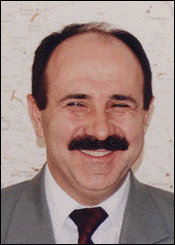 CONSTRUCTION & INFRASTRUCTURE CONSTRUCTION & INFRASTRUCTURE |
Some of the most beautiful countries' landmarks worldwide, such as the Ministry complex in Kuwait, conference centers in Ghana, Zimbabwe and Uganda, Mediterranean club in Maldives, the International Trade Fair in Lagos, Sheraton hotel in Kampala, and many other piers, ports and bridges in Algeria, Iraq, Libya, Germany, Russia, Ukraine, Moldavia and Israel were made by well known Serbian construction companies. Ten years of sanctions forced Serbian companies to narrow their market mainly to Russia and other ex-Soviet republics. The democratic changes in Serbia brought hopes that with the cooperation of foreign investors, Serbian engineers would be able to prove their skills both on the local market and abroad.

There are many reasons why the construction sector in Serbia might be of interest for foreign partners. Serbia itself is going to become a wide construction market starting from the reconstruction of destroyed facilities during the war and the rehabilitation of motorways and railways, to the more refined works such as public tenders for new first class hotels and apartments. "Now with the opening of Yugoslavia and reforms in the banking sector, foreign investors can once again come to this country and work with our companies the same way they did before", says Mr. Dragoslav Sumarac, Minister of Urbanism and Construction. His priority is to create an investment environment that would enable foreign companies, especially American ones, to participate in the reconstruction of Serbia and invest in it.
"There were no investments made in the infrastructure for the last ten years...85% of the roads have to be reconstructed" adds Ms. Vukosavljevic, Minister of Transport and Telecommunications.
For the time being, the country's priority in the construction sector is cleaning the Danube bank. Three bridges in Novi Sad, capital of Vojvodina were destroyed in 1999 and remnants have to be removed. The works are estimated on 23 million EUR and the funds for that are secured by donation of the Danube Commission. There are five international public tenders and Serbian company Mostogradnja, along with foreign partners won three of them.
 | The construction sector will be one of the strongest engines of this year's rise in GDP. It is expected that construction outputs will grow for 15% in 2002. The international financial institutions such as the EBRD, EIB and EAR already pledged some 170 million euros for these works, funding absolutely needed according to Mr. Zivadin Mihailovic, President of Stankom Holding Co. "The whole country needs foreign investments. And without significant investments we cannot achieve visible progress," declared Mr. Mihailovic.
"We are going to invite various foreign road building companies to participate in our tenders", says Mr. Tihomir Timotijevic, Director of the Serbian Republic Road Directorate. The Directorate deals with roads, planning, projects concerning roads, building and exploitation of the road system development. The Directorate itself consists of two main sectors: building and reparation of the main roads and regional roads. Both of them deal with altogether 17 000 km of roads in Serbia (6000km of main and 11000km of regional roads). The whole sector is approximately worth between US 14 and US 17 billion dollars. "Our only chance for bigger projects is to be connected with western companies. We are now negotiating with an American foundation the joint construction of a highway network, " says Mr. Djordje Antelj, owner of the private construction company Gemax, which already took part in some road construction works.
The Turkish construction giant Enka already offered to Serbian partners the possibility to join their forces in building trade centers and supermarkets. Mr. Antelj agrees that such projects are worth looking at. For the moment, Gemax is in negotiations with a Greek company called Veropoulos that wants to build a big trade center in New Belgrade. The French Cora and German Metro are also building big shopping malls here. Some Israeli constructing companies are interested in building big business centers, each of them will be 50.000 square meters. "These are the first hints of future economic trends in new Serbia", says Mr. Antelj.
Together with agriculture, construction is probably the most important sector in the transition period of Serbia. Two British business delegations that visited Serbia were mainly interested in those two fields. The Free trade agreement that Serbia has with Russia could be of long lasting interest for foreign partners, in construction as well as in other fields. Several British construction companies showed their interest in making contacts with Serbian construction companies such as Energoproject, Ratko Mitrovic and Rad, all of whom have a long experience and good reputation in Russia but need strong financial backing.
At the moment, the Serbian Government is negotiating a job worth US 60 million dollars with Russian authorities. Serbia is buying gas from Russians and in return for the hard currency, gas is paid in construction works. "Russia will engage our engineers in construction of their apartments, villas and hotels. We also had some work in Germany with a total number of 2500 workers among who there were 1000 German engineers. Finally, another possibility is the involvement of our engineers in the construction sector in the preparation of the Olympic games in Greece", says Mr. Sumarac. |

